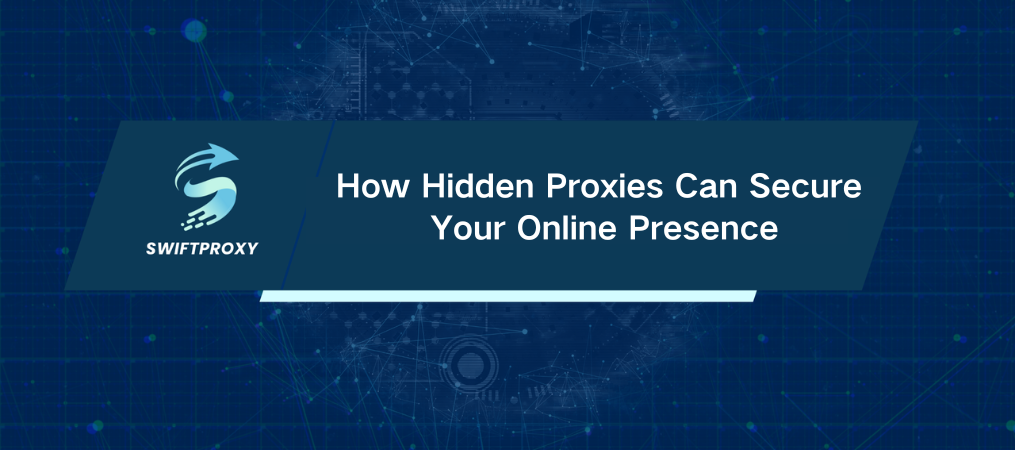How Hidden Proxies Can Secure Your Online Presence

In today's interconnected world, your IP address is more than just a set of numbers. It's a beacon that broadcasts your location and online activity. But what if you could hide that beacon? Enter hidden proxies—a powerful tool to mask your true identity and ensure a safer, more anonymous browsing experience.
This guide will dive deep into hidden proxies, covering their unique features and how you can leverage them effectively to protect your privacy and boost your online experience.
Why Hidden Proxy IPs Are a Game-Changer
1. Complete Anonymity
The defining characteristic of hidden proxies is their ability to completely obscure your real IP address. When you route your web traffic through a hidden proxy server, it becomes nearly impossible for anyone to trace your online activity back to you. This makes hidden proxies an invaluable tool for anyone looking to maintain online privacy.
2. Unmatched Speed
Not all proxies slow you down. In fact, high-quality hidden proxies are often faster than their low-anonymity counterparts. With faster servers and optimized infrastructure, they ensure that you get the speed you need, whether you're scraping data, streaming, or browsing.
3. Stability When You Need It
Hidden proxies are built for performance under pressure. These servers can handle high traffic loads and multiple simultaneous requests without crashing. This makes them ideal for businesses or power users who need consistent and stable access to the internet.
4. Versatile and Adaptable
Hidden proxies aren't just for individuals who want to maintain privacy. They're perfect for businesses and organizations looking to bypass geo-restrictions, collect large volumes of data, or even run market research in different regions without being detected.
How to Use Hidden Proxies Like a Pro
1. Select the Right Provider
Your hidden proxy experience begins with choosing the right provider. Look for reputable services with robust IP pools, global coverage, and strong uptime records. The more diverse and reliable the provider, the better your overall experience will be. Do your research and select wisely.
2. Proper Setup
For hidden proxies to work as intended, they must be configured properly. This includes:
Selecting the right proxy type (HTTP, HTTPS, or SOCKS).
Entering the server address and port information.
Setting up any required authentication credentials.
Make sure you follow setup guides provided by the service, as incorrect configuration can compromise both functionality and security.
3. Respect the Rules
Just because you can hide your IP doesn't mean you should use it for unethical or illegal activities. Hidden proxies can be a powerful tool, but they must be used responsibly. Stay within legal boundaries, and remember that unethical use can get you into trouble.
4. Rotate Your IPs Regularly
Sticking with one proxy IP for too long can lead to being blocked or flagged by websites. To keep your activities anonymous and avoid detection, regularly rotate your IP addresses. Some providers automate this process, but if yours doesn't, make it a habit to change your IP periodically.
5. Monitor Proxy Health
Hidden proxies can occasionally go offline, especially during maintenance or high-traffic times. To avoid disruptions in service, ensure that you're regularly checking the status of your proxy IPs. This will help prevent any unexpected downtime when you need access the most.
Conclusion
Hidden proxies are a crucial tool for anyone serious about online privacy and anonymity. They allow you to mask your real identity, maintain privacy, and access content without restrictions. However, they aren't a silver bullet. To get the most out of them, you need to choose a trusted provider, configure them correctly, and use them responsibly.
In the evolving landscape of internet security and privacy, hidden proxies will continue to be an essential part of safeguarding your digital presence. Whether you're an individual protecting your privacy or a business bypassing restrictions, hidden proxies offer valuable flexibility and security.
So, take control of your online privacy today. With the right hidden proxy solution, you can browse with confidence and stay ahead of digital threats.

















































